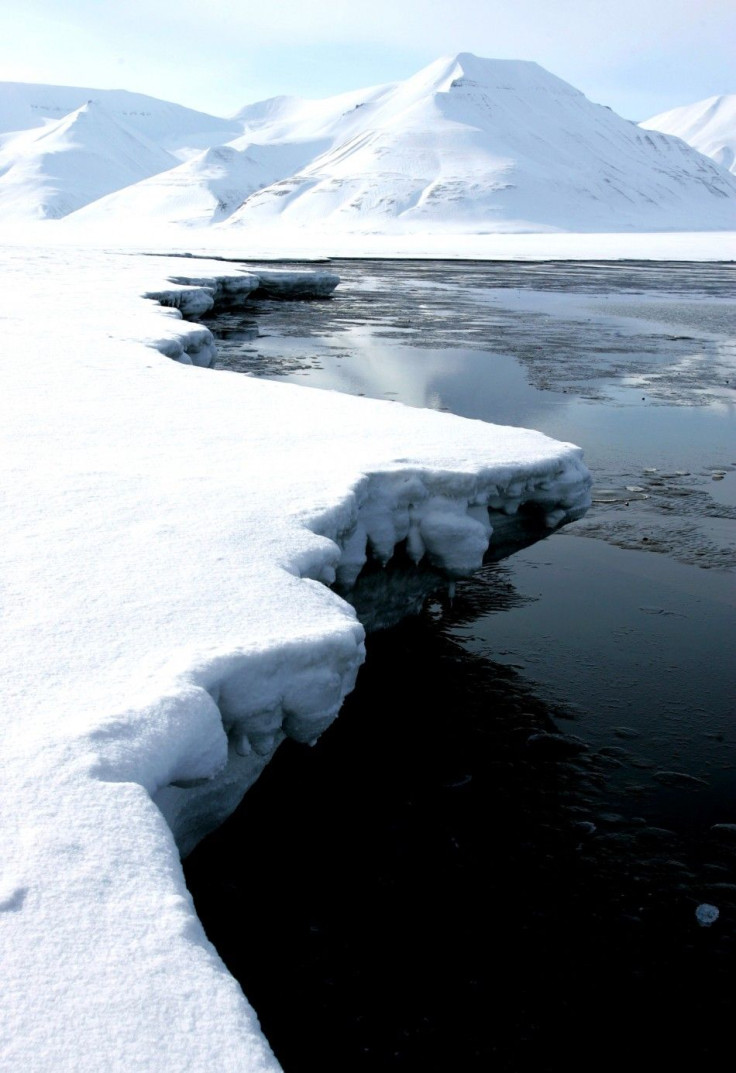Arctic Sea Ice Melts at a Record Level: NSIDC

The Arctic sea ice extent in the last few days have declined slowly, the National Snow and Ice Data Center on Tuesday said that Arctic sea ice extent is currently at the second-lowest levels in the satellite records since 1979.
Despite a rainy and cold summer, Global warming is melting the Arctic ice cap in a much higher speed predicted.
As of Saturday, Arctic sea ice extent was 4.34 million square kilometers (1.68 million square miles). This was 110,000 square kilometers (42,500 square miles) above the 2007 value on the same date. The record minimum Arctic sea ice extent, recorded in 2007, was 4.17 million square kilometers (1.61 million square miles), according to NSIDC.
NSIDC is expected to announce similar data on Arctic sea ice extent in coming days. It is yet to be determined whether Tuesday's figure will be the lowest for the year.
Scientists consider the Arctic's sea ice shrinking as a measure of global warming.
Because sea ice reflects most of incoming sunlight and keeps the Arctic cold throughout summer, the sea ice level on long days of summer plays a significant role in blocking solar radiation. When the Arctic is covered by large areas of open water in the beginning of the summer, the solar radiation heats the ocean and melts more sea ice, leading to the ice-albedo feedback, a negative cycle where warming decreases ice cover and greater solar energy is absorbed.
We're getting close, but there is possibility for further loss of ice, Walt Meier, a research scientist at the Boulder, Colorado-based National Snow and Ice Data Center said.
In the last few days the rate of decline has flattened considerably: Arctic sea ice is likely near its minimum value for the year. Weather pattern plays an important role in pushing down the ice extent.
NSIDC scientists are expected to make an announcement when ice extent has stopped declining and has expanded for several days in a row, indicating that the Arctic sea ice has reached its lowest extent for the year and has begun freezing over.
NSIDC scientist during the first week of October will issue a more detailed analysis of this year's melt season and the state of the sea ice after data are processed and analyzed for the month of September.
Another institution University of Bremen in Germany by using different satellite sensors and sea ice algorithms has reported that this year's Arctic ice coverage was the lowest on record. University of Bremen last week issued a report that sea-ice coverage on Sept. 8 fell below the 2007 minimum.
© Copyright IBTimes 2024. All rights reserved.





















